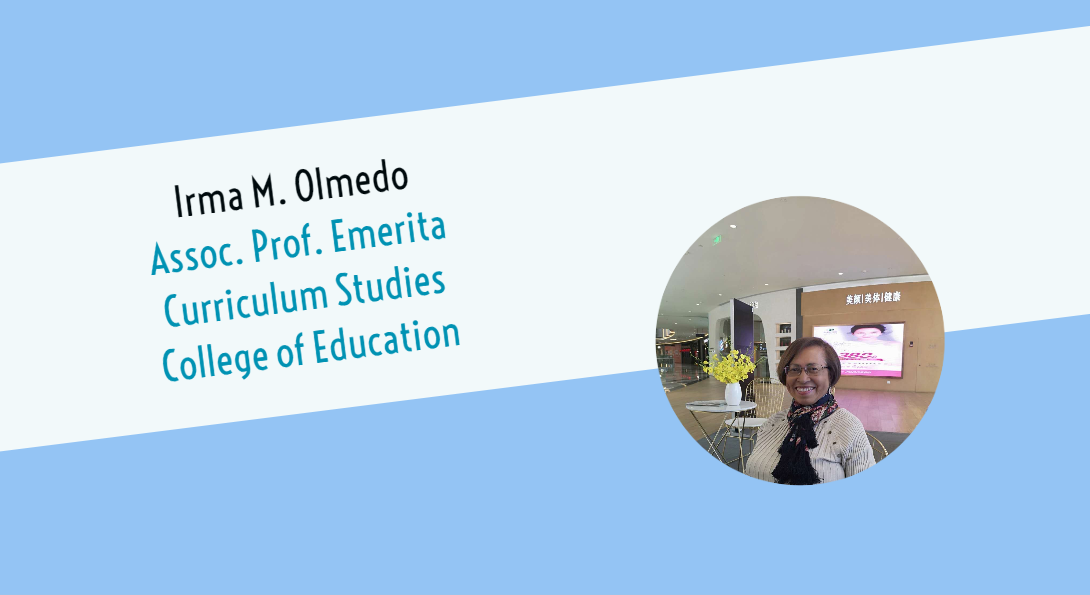Irma

Irma M. Olmedo, Assoc. Prof. Emerita, Curriculum Studies, College of Education
My language story starts when I arrived in NYC from Puerto Rico at the age of 8, speaking only Spanish. There were only 2 students in my 3rd grade class who knew Spanish and my teacher sat me next to Iris so she could help me. My biggest concern was how to say that I needed to go to the girls’ bathroom and so my cousins practiced that sentence with me while I was learning to say My name is ____. Fortunately, the teacher was patient and I was a good girl, always paying attention and repeating to myself what she said. By the end of the year I was at the top of the class in spelling and math. I was not so strong with reading because of my Spanish accent when I read out loud. I still remember my difficulty in reading words like “mischievous” or “make believe” and “naughty,” using a Spanish pronunciation for those words! I managed to do well academically during the rest of my schooling.
The challenge in Spanish class in high school was that Ms. Davis, my Spanish teacher, had little knowledge of or respect for Puerto Rican Spanish. She refused to accept common vocabulary that we used at home, like escritorio (pupitre), pluma (boligrafo). guineo (platano), chinas (naranjas). Only the vocabulary that she knew was considered acceptable. But as I learned English, I liked being able to stand on my own two feet to express myself. I also loved being able to choose books in English from the library and being able to read them.
My knowledge of Spanish helped me with my studies of Latin and French in college. Because of my experiences as a child, and my love for my own language and culture, I became a high school Spanish teacher. After teaching Spanish for many years, I accompanied my husband to Germany for a Fulbright. What a treat to learn a new language, German, as an adult and be able to critique the language teaching approach of the Goethe Institute. Again, Spanish helped me with grammar, but not with pronunciation.
I came to UIC in 1993, in the College of Education, Department of Curriculum and Instruction. I taught there until 2009, graduate and undergraduate courses, some focusing on the preparation of teachers for children who spoke languages other than English.
My current language challenge is learning Chinese. My son-in-law is Chinese and I’ve visited his family in China, painfully doing my best, in situations where my 7-year-old granddaughter is doing fine communicating in Mandarin with family members and friends. My Spanish scarcely helps me here. And whatever I learn sounds more like Spanish than Mandarin!